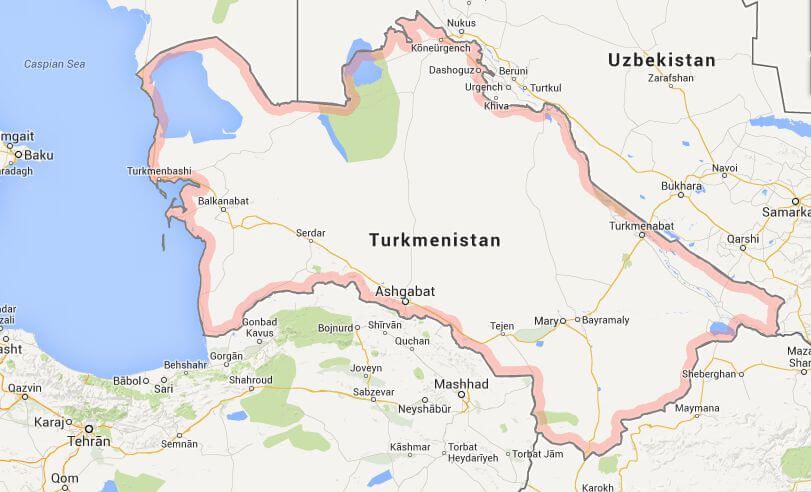 Everything you need to know about today’s coverage of Israel and the Mideast. Join the Israel Daily News Stream on Facebook.
Everything you need to know about today’s coverage of Israel and the Mideast. Join the Israel Daily News Stream on Facebook.
Today’s Top Stories
1. Lebanon is “about to award offshore oil and gas exploration licenses in areas that encroach on Israel’s exclusive economic zone,” reports Globes. What next? Beirut officials selling Tel Aviv timeshares?
2. Khamenei’s nuclear arms fatwa doesn’t exist.
3. Looks like the Arab Spring Winter reached Sudan, where protesters are calling for President Omar Bashir to step down. Reports say Sudanese forces have killed 210 people and arrested hundreds of students and opposition members in the past week. Authorities also shut down the country’s largest paper. The unrest was sparked by a rise in fuel prices. The Jerusalem Post assesses the Sudanese spiral.
Because of an International Criminal Court warrant for Bashir’s arrest (war crimes, crimes against humanity, and genocide in Darfur), the Sudanese autocrat cancelled a UN visit.
Israel and the Palestinians
• Humanitarian aid personnel working with Palestinian refugees told AP that the Syrian crisis is taking a toll on their own fundraising.
• Jonathan Spyer: With Morsi gone, Hamas is turning back to Iran:
The turn back to Iran will prevent any possible eclipse of the Hamas regime in Gaza, and end any hopes that the Ramallah Palestinian Authority might have had for its return to exclusive control of Palestinian nationalism.
• From the National Post:
Iranian Atomic Urgency
• AP: Will Iranian-American rapprochement drive a wedge between the US and the Gulf states?
• Appearing on This Week, Iran’s foreign minister told George Stephanopoulos that the Holocaust was a “heinous crime” and a “genocide.” But before you start showering Javad Zarif with peace laurels, see the context:
“We condemn the killing of innocent people, whether it happened in Nazi Germany or whether it’s happening in Palestine,” Zarif said. “[The] Holocaust was a heinous crime, it was a genocide, it must never be allowed to be repeated, but that crime cannot be and should not be a justification to trample the rights of the Palestinian people for 60 years.”
• Bibi to meet with Turkmenistan’s foreign minister, Rashid Meredov, on the UN sidelines. The Jerusalem Post explains why this matters:
But the meeting with Meredov late Sunday afternoon in New York is also important for Tehran because it signals a strengthening of ties between Israel and the country to Iran’s north-northeast, with whom it shares a 1,000-km. border.

• For more commentary/analysis, see Aaron David Miller, the Times of Israel, Richard Haass (Financial Times via Google News), Daniel Levy, John Bolton (Wall St. Journal via Google News), Michael Totten, Noah Beck, the Globe & Mail, plus staff-eds in the NY Daily News (one and two),and Pittsburgh Post-Gazette.
The Syrian Situation
• France was “hours away” from launching military strikes on Syria when the White House informed Francois Hollande it would seek Congressional approval. The Independent writes:
Rafale aircraft were readied that Saturday for take-off and official statements prepared in anticipation of the strikes, according to the Nouvel Observateur. “Everything made us think that D-Day had arrived,” a French official is quoted as saying. The magazine said that “this incredible misunderstanding lasted until the end of the afternoon,” at 6.15pm, when President Obama telephoned Mr Hollande, who was expecting to confirm the military orders just after the phone call. The strikes had been intended to start at 3am later that night, targeting missile batteries and command centres of the 4th Armoured Division in charge of chemical weapons.
But instead of confirming that the US and French military would intervene jointly, President Obama changed his mind following a conversation in the White House Rose garden with his chief of staff Denis McDonough.
The French Defence Ministry had no comment on the Nouvel Observateur report today. But it was clear that the French military establishment was stung by the US leader’s behaviour.
Rest O’ the Roundup
• Worth reading: After 2,500 years, the Jewish community of Yemen has dwindled to some 20 families, living together in a compound in the capital city of Sana’a. Time visited the compound to see how Yemen’s last 90 Jews are faring since the Arab Spring overthrow of their protector, Ali Abdullah Saleh.
• Al-Qaida’s Twitter account was suspended after five days and nearly 50 tweets. The Daily Mail wonders why it took Twitter so long to shut it down.
(Image of Bashir via YouTube/eNCAnews)
For more, see yesterday’s Israel Daily News Stream.


